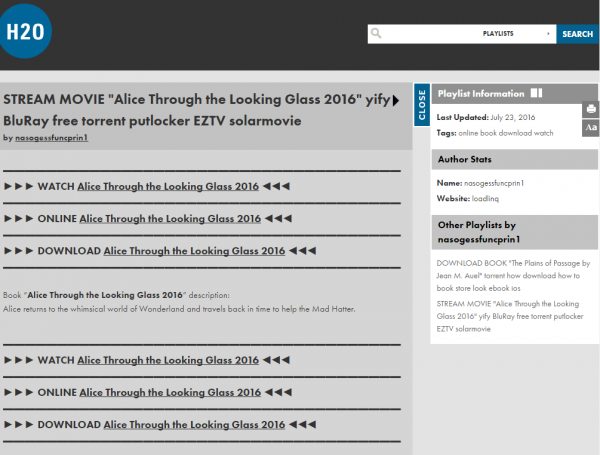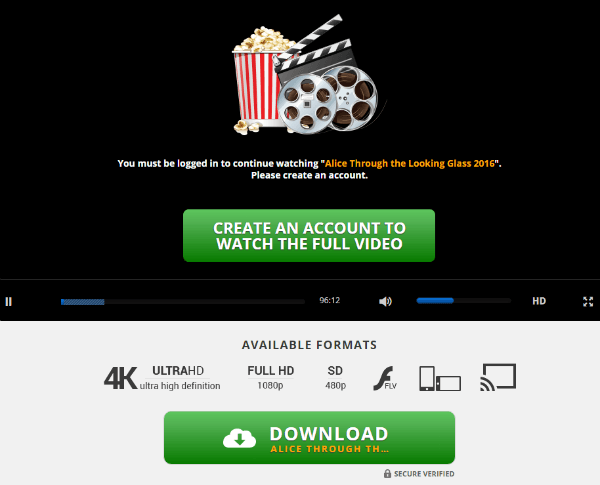 When peer-to-peer file-sharing networks started to gain traction more than a decade and a half ago, it soon became clear that if entertainment industries were to compete, they’d need to step up their game.
When peer-to-peer file-sharing networks started to gain traction more than a decade and a half ago, it soon became clear that if entertainment industries were to compete, they’d need to step up their game.
In the early 2000s, for example, users of Sharman Networks’ Kazaa software already had wide and free access to music and video titles. The introduction of BitTorrent shortly after only turned up the pressure.
Fifteen years down the line it’s now clearer than ever. The true enemy of illicit file-sharing is broad and convenient access to all content at a fair price. In the meantime, however, platforms such as torrent sites continue to pick up the slack. More than a decade ago, they were leading the charge.
Founded in 2003/4, torrent site UKNova took a somewhat unusual approach to its offering. Rather than the free-for-all witnessed on most platforms, UKNova aimed to responsibly service UK-based consumers and those overseas with select content that couldn’t easily be obtained by other means.
Initially, the site catered to a few ex-pats who were desperate for their fix of long-running TV soap, Eastenders. It had been made available in the States by BBC America, but in 2003 the iconic show was dropped.
“After initially sending VHS tapes across the Atlantic, a daring foray into the unknown world of trackers and torrents was made by brave visionaries and uknova.com was born,” a site operator told TorrentFreak.
“UKNova rapidly became known as the ‘go-to’ place for UK television and for a while was probably the leading private tracker catering to ex-pats and Anglophiles around the world.”
Most private torrent sites have strict rules, but UKNova went a step further than most by only allowing UK-produced TV content that was not available on DVD or premium channels. But despite the restrictions, UKNova was a success.
“Membership rapidly grew and was voluntarily limited to between 30,000 and 40,000 members. Forum activity could become so heavy that server problems arose, leading to an iconic ‘Mind The Gap‘ message.”
But UKNova was much more than just a torrent site. Like many niche trackers, UKNova had a thriving close-knit community centered around the theme and culture of UK TV. With assistance from the site’s radio station, those friendships thrived beyond the digital space.
“Events and activities grew from the forums: picnics and meet-ups, annual awards ceremonies with live radio, mugs and t-shirts, fantasy football leagues, and above all solidarity for members who were in need, ill or deceased,” the operator explains.
“There were at least four marriages resulting from friendships struck up on UKNova’s forums and IRC chat.”
Due to the nature of UK TV (free to view, for those who pay the standard license fee), UKNova offered a lot of BBC content. Back in the early days BBC iPlayer simply did not exist so once shows disappeared off air, that was that until the corporation decided to bring them back. UKNova not only filled that gap, but even received a request to help the BBC complete its archives.
“During this time relations with the BBC were cordial. In one case UKNova was even asked if they could find a missing recording of documentary series Horizon,” a site representative explains.
But by 2012, the atmosphere had begun to shift.
“UKNova is being forced to change,” an operator told TF at the time. “We have been issued with a ‘cease and desist’ order by FACT (Federation Against Copyright Theft.”
FACT was clear in its demands. All copyrighted content needed to come down, no matter where that content had come from and despite the fact that UKNova had never had a complaint from any TV station since its inception. The site didn’t believe it could be successfully prosecuted but had no way of defending itself.
“UKNova has never had any source of revenue other than donations to help pay for the servers and bandwidth. In latter years the site survived uniquely on private donations from Staff,” TF was told.
Within weeks UKNova shut down, but the dream wasn’t quite over yet.
“In 2013 a group of independent users decided to re-ignite the flame with a new site which was kept as low profile as possible. This site kept the ethos of the original UKNova, with the same rules concerning commercially available material,” a site veteran explains.
This, it appears, was to be the site’s ultimate undoing. The environment in 2013 was massively different to that of 2003. Legitimate services were appearing left and right, meaning that the content pool available to UKNova users under the site’s own stringent rules was diminishing every day.
UKNova’s decision to maintain its position as “the ethical torrent site” was cutting off its own oxygen supply and over the next three years the site began to die.
“In 2016 it became clear that the advent of the BBC Store and Amazon Video, linked to the quasi-immediate availability of shows from other channels on DVD, meant that allowable content was shrinking daily,” a site operator explains.
With the main reason for people visiting the site diminishing all the time, members had less and less to talk about. The continued rise of external and mainstream social media only exacerbated the situation.
“The discussion forums were grinding to a halt and membership was gradually shrinking. Rather than flogging a dead horse it seemed appropriate to turn out the lights, lock the door and gracefully retire.”
On Saturday August 7, UKNova’s trackers were taken offline. A week later the site was shuttered completely. UKNova was dead, this time for real.
“It’s been a good long run, so much good has been done, and so much fun has been had, by so many people – a unique experience. But all good things..,” the site said in a closing statement.
While FACT’s intervention was certainly an unwelcome one, it seems fairly clear that its own strict rules and the availability of legitimate content was what ultimately led to UKNova’s demise. Sadly, however, UKNova’s initial goals of serving the ex-pat community are still proving a problem today.
Only last week, FACT and the UK’s Police Intellectual Property Unit shut down an IPTV service directly aimed at British citizens living abroad.
PIPCU said that the platform had many thousands of customers, showing that a potentially lucrative market still exists if only someone, somewhere, would service it. Someone will, but it won’t be UKNova.
Source: TF, for the latest info on copyright, file-sharing, torrent sites and ANONYMOUS VPN services.

 Over the past years a lot has been said about the effectiveness and accuracy of DMCA takedown practices.
Over the past years a lot has been said about the effectiveness and accuracy of DMCA takedown practices. 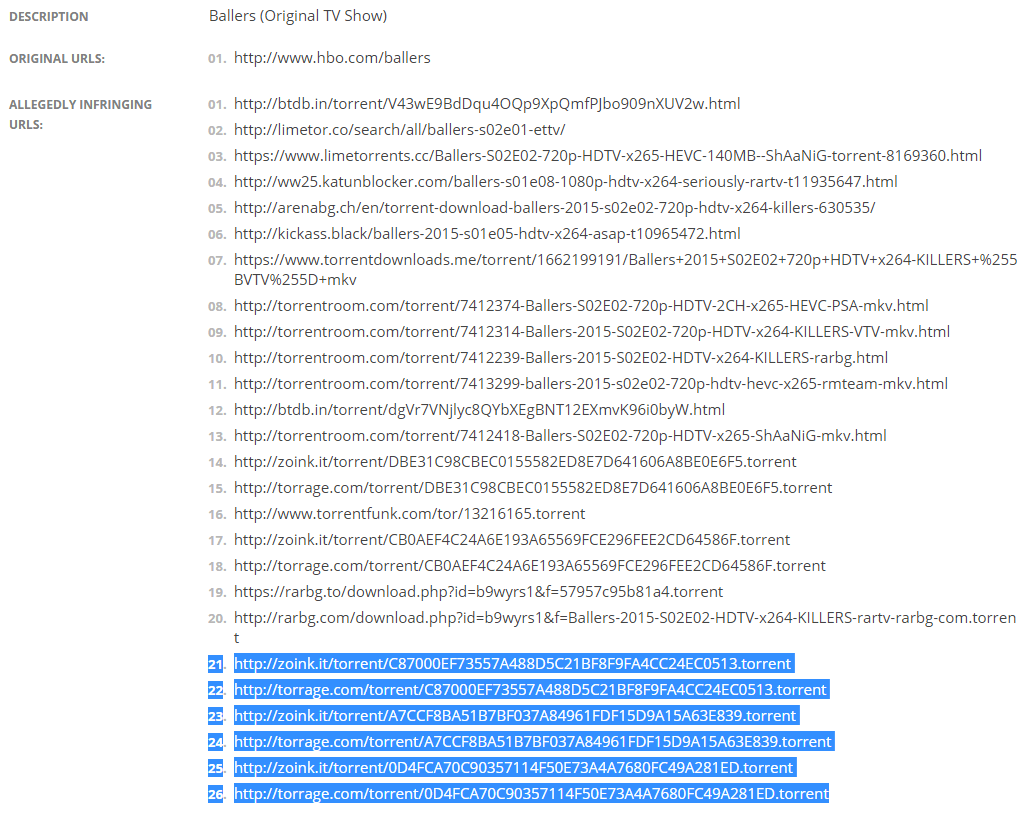
 When peer-to-peer file-sharing networks started to gain traction more than a decade and a half ago, it soon became clear that if entertainment industries were to compete, they’d need to step up their game.
When peer-to-peer file-sharing networks started to gain traction more than a decade and a half ago, it soon became clear that if entertainment industries were to compete, they’d need to step up their game. The makers of
The makers of 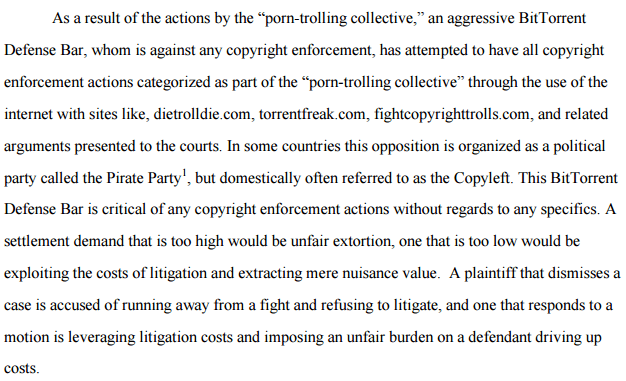

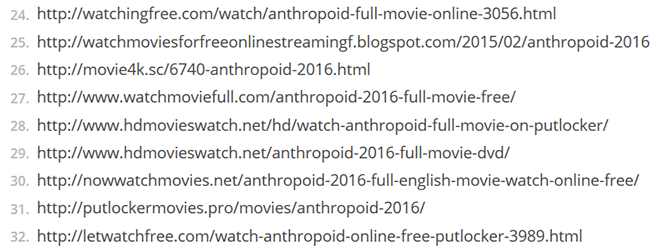

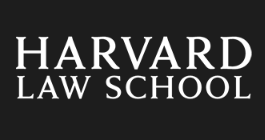 H2O is a tool that allows professors and students to share learning material in a more affordable way.
H2O is a tool that allows professors and students to share learning material in a more affordable way.